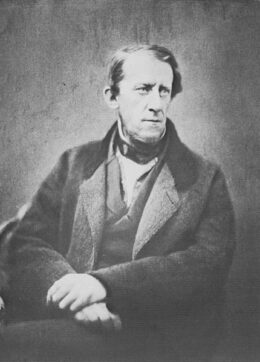Printed
24 pages
Author(s)
Die drei Wünsche
Here Pocci borrows his subject from a tale by Ludwig Bechstein (1801-1860), the most famous German storyteller after the Brothers Grimm. He accentuates the comical and grotesque aspects of the story through the satirical portrayal of his characters, who are as greedy as they are rude and clumsy. Pocci's play was quite successful at the beginning of the 20th century, and it was probably as much the inspiration for some of the central scenes of Franz August Rokos' play Der Schmied von Jüterbock as for Bechstein's tale.
The characters waste a fairy's gifts
Martin, a woodcutter, frees a fairy from an oak tree she has been trapped in for 500 years. The fairy gives him a ring that allows him to fulfil three wishes. Martin confides the secret to his wife Margreth, who tells Casperl, their neighbour. While Martin goes to ask the mayor and the priest for advice, Margreth, in conversation with Casperl, takes it upon herself to wish for a plate of sausages, even though she has the ring on her finger: her wish is immediately fulfilled. Seeing this, Martin retrieves the ring and, in his anger, vows that his wife will have sausages hanging from her nose. The wish comes true and the two men are no longer able to amputate Margreth's sausage appendages: all they can do is wish them away, and the gift of the three wishes is wasted.
First performance
Münchner Marionettentheater
Publications and translations
Franz Pocci: Lustiges Komödienbüchlein, zweites Bändchen, München, J.J. Lentner, 1861
Franz von Pocci: Lustiges Komödienbüchlein 2, "Editio Monacensia", hrsg. von Ulrich Dittman und Manfred Nöbel, München, Allitera Verlag, 2007
